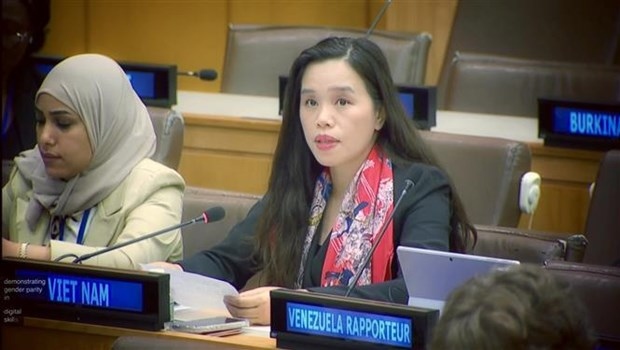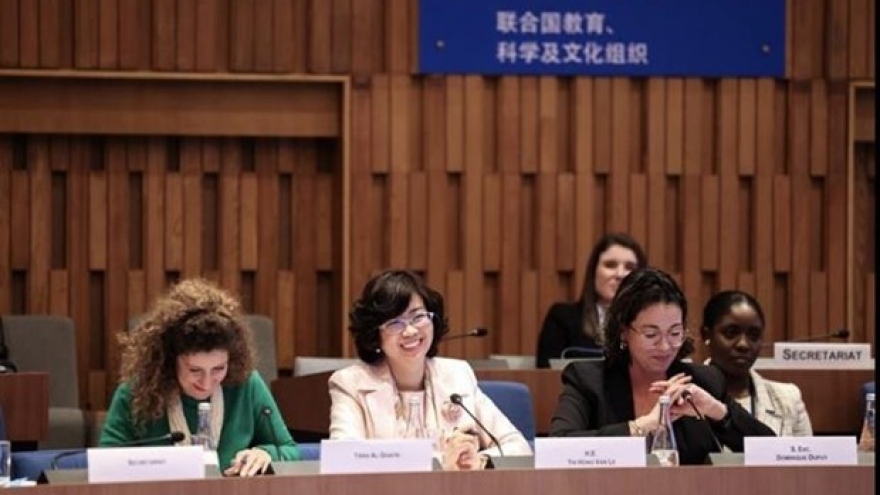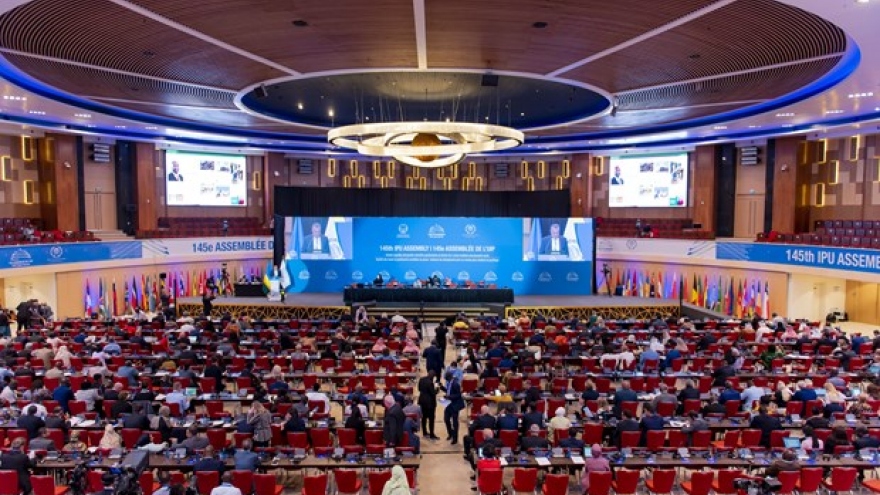Vietnam highlights need for int’l cooperation in ensuring gender equality
It is necessary to promote international cooperation to support countries in implementing international commitments to ensure the full, equal and meaningful participation of women and girls in all areas of social life, contributing to preventing violence and discrimination, said Minister Counsellor Le Thi Minh Thoa, Deputy Permanent Representative of Vietnam to the United Nations.

Thoa made the remark at a meeting of the UN Committee on Social, Humanitarian and Cultural Issues of the 78th-tenure UN General Assembly on October 3.
The diplomat held that women in many parts of the world are facing problems such as health, loss or reduction of income, lagging behind in access to knowledge, employment opportunities and integration, and becoming victims of gender-based violence. Meanwhile, digital transformation and global economic trends, on the one hand, are both solutions and, on the other hand, pose the risk of exacerbating women's vulnerabilities, she stressed.
The Vietnamese representative underlined that in the context of digital transformation, it is crucial to focus on improving digital skills of female workers and promoting the role of women in developing the digital economy. In addition, it is necessary to create favourable conditions for women and girls to develop their careers in science and technology, and protect women's rights in the digital environment.
On the occasion, Thoa highlighted achievements that Vietnam has gained in ensuring the rights of women and gender equality in the process of policy making, law building and development strategy designing.
Notably, Vietnam has a high ratio of women among National Assembly deputies and leaders, he said, adding that the country has shown strong performance in ensuring employment for women as well as gender equality in the digital era.
Vietnam will continue to cooperate with the international community in promoting gender equality and progress of women, the diplomat affirmed.
At the meeting, the majority of countries said that signs of regression have been seen in the promotion of the role and participation of women in all fields of social life. Women are still largely affected by today's intertwined and multi-dimensional crises, they noted.


